Rose Summer Coffee Bean Story Panama Ethiopia Rose Summer Coffee Bean Hand brewed Flavor Characteristics Description Difference
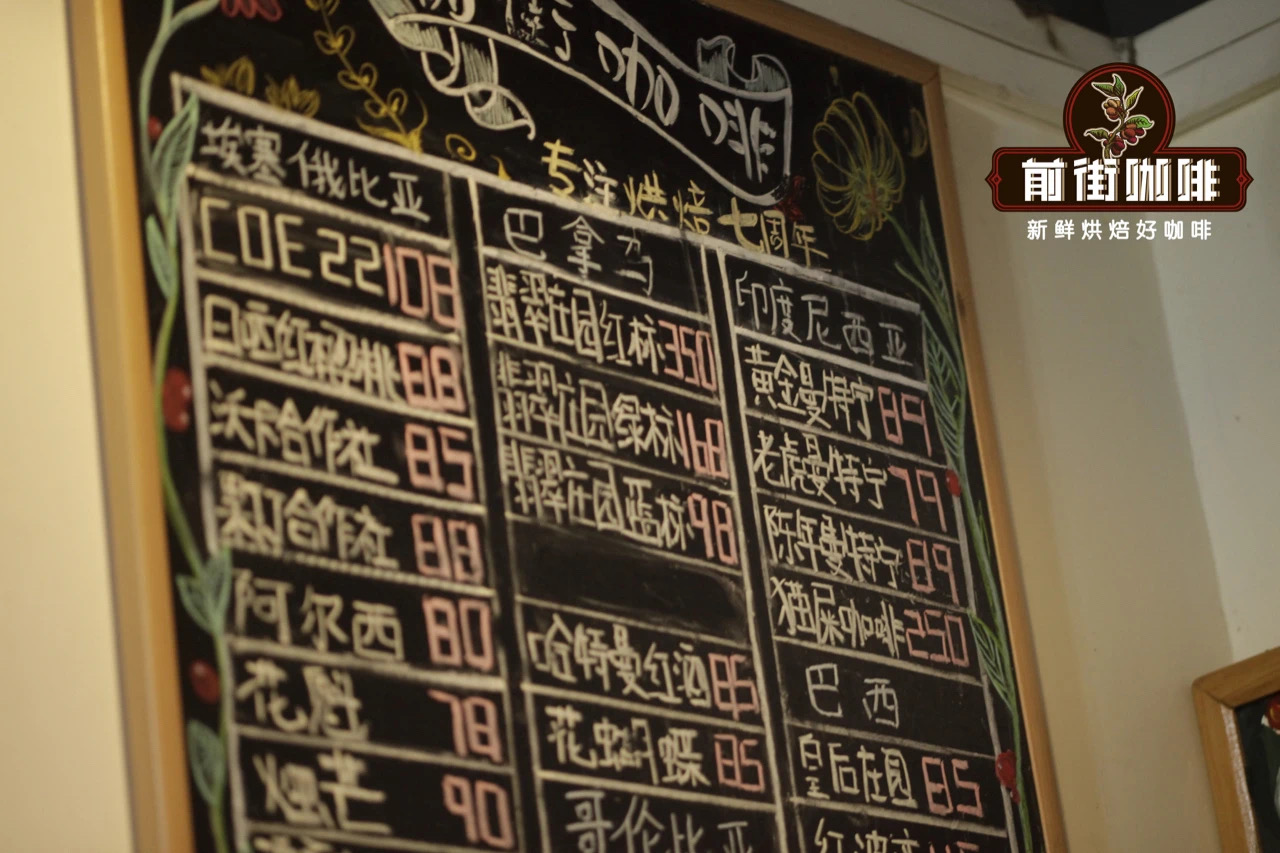
Many friends who come to Qianjie Coffee have heard of the name of Rosa Coffee even if they have not tasted it. You know, Rosa coffee beans have an extraordinary legend, which is famous in the Panamanian coffee industry and even the boutique coffee industry. The front street of this article will tell you those stories about Rose Summer Coffee. I believe that after reading this article, you will know clearly where Rose Summer Coffee comes from and how it was discovered and famous. not only that, Qianjie will also compare the Panamanian Rose Summer Coffee with the Ethiopian Rose Summer Coffee, and convey the information about the flavor and taste characteristics and differences between them directly through this article.
The spreading history of Rosa coffee beans
Rose coffee beans originated from southwestern Ethiopia in Africa. Rosa coffee was introduced to Panama by Don Pachi Serracin from Costa Rica in 1963. Because the yield is not high, which directly affects the harvest, coffee farmers are not willing to plant and have been regarded as windbreak trees. Until Daniel Peterson, the owner of Panama La Esmeralda in Panama, accidentally found that the coffee beans produced by these rosy summer coffee trees, which used to be used as windbreaks, had the unique citrus and flower flavor of African beans at the top of his coffee farm, so he separated his coffee beans and took part in the 2004 Panama Coffee Bean Cup Test Competition and became popular all at once. Since then, Rose Xiadou has been unstoppable and has been the champion of the Panamanian coffee cup test competition for many years. In the eyes of boutique coffee lovers all over the world, Rosa coffee beans are undoubtedly the supreme treasure.
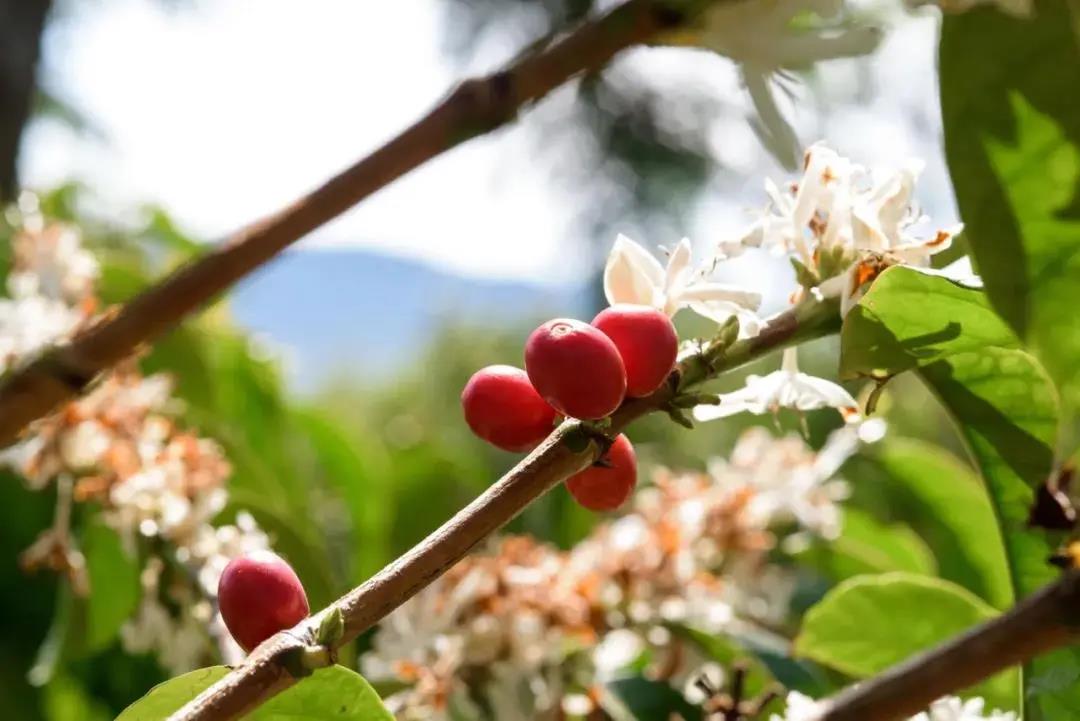
The flavor of Rosa coffee
Although the flavor of Rosa Variety is exquisite, such an elegant flavor comes from a specific planting environment. Rose varieties are very picky about their growing environment and are required to be planted in areas with high altitude, cloudy shade or a large number of shade trees and fertile soil. High-altitude rose summer coffee with obvious floral aroma, delicate and elegant fruit acid, such an elegant flavor is also one of the reasons why it is popular all over the world.
Qianjie Coffee has written a lot of articles about the rosy summer of the jadeite manor. In this article, Qianjie no longer describes the rosy summer of the jadeite manor in detail. This time, Qianjie Coffee will compare the rose summer coffee of Ethiopia, the hometown of Rose Summer, and the rose summer coffee of the Emerald Manor of Panama, to see how the flavor of the two kinds of rose summer performs.
Panamanian Emerald Manor Rose Summer
In 2017, Panamanian Emerald Manor Rose Summer Coffee beans won the championship in the sun group again. It should be the 18th championship trophy. Can stand out among many strong players year after year, except for the delicious gene of rose summer beans. Good coffee farm management, harvesting and handling are indispensable. It is worth mentioning that the owner of the jadeite manor attaches great importance to environmental protection. So the coffee produced can take part in the Rainforest Alliance Cup Test Competition and bring back the five-time championship trophy.
The way to get high prices for valuable items through auction is also applicable to the sale of high-quality coffee beans. Panamanian Emerald Manor Rosa Coffee beans are particularly different. In order to make their own careful planting, management of good coffee beans to get a reasonable reward. Every year after the coffee cup test competition, the Emerald Manor holds its own global auction, which is also the annual event of the boutique coffee industry.
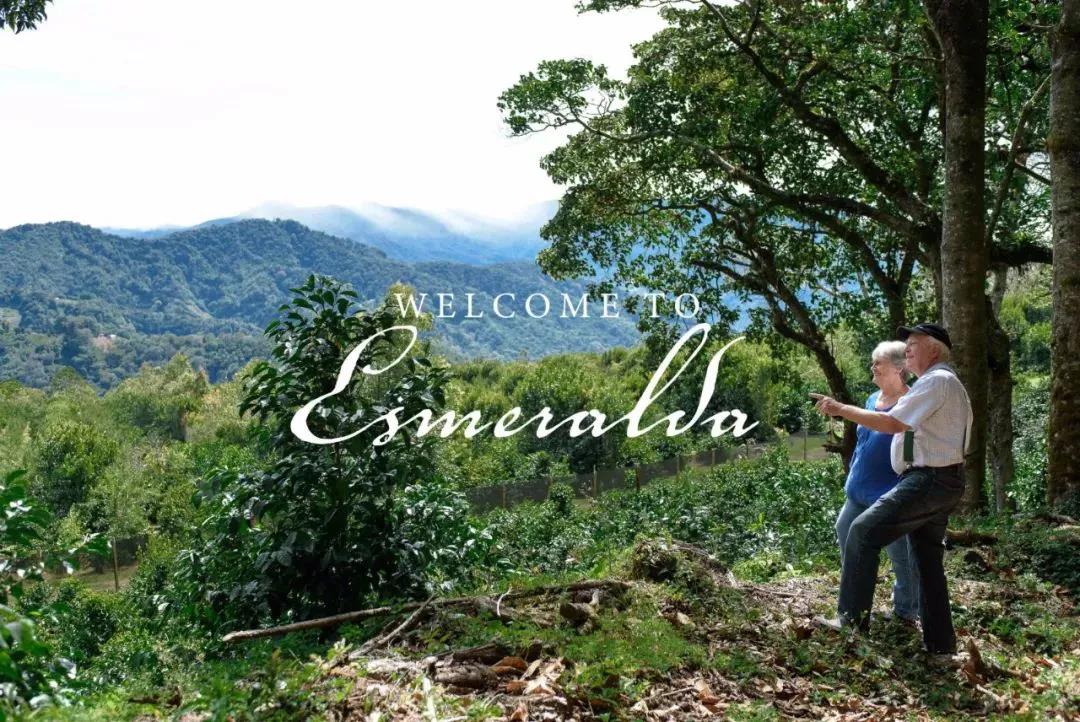
After years of experiments, the Emerald Manor has found that only the roses received by coffee trees growing above 1400 meters above sea level can show the special flavor of roses. Therefore, the main classification is based on the planting height, supplemented by the actual cup test results, divided into the "jadeite special selection (red standard) private collection (green standard) and Rosa 1500 (blue standard)" grade of rose summer beans. The auction grade of the jadeite manor is the jadeite special selection, commonly known as the red bid. The rosy summer specially selected by jadeite is the red sign we often hear. The rose beans, which are planted at 1600-1800 meters above sea level and with a cup test score of more than 90 points, are produced in two producing areas of Haramiyo (Jaramillo) and Canas Vidis (Canas Verdes). Red label batches will be washed or tanned. Qianjie Coffee Red sign Rose Summer comes from the Burmese gauze plot, which is the latest purchase of Jade Manor, with an average elevation of 1700-1900m. The Jade Manor Red Standard Rose Summer of Qianjie Coffee uses sun treatment, which has bright roses, citrus aromas, black rice, berries, apricots, compound fruits and honey, with a thick sense of juice, rich flavor levels and obvious sweetness.
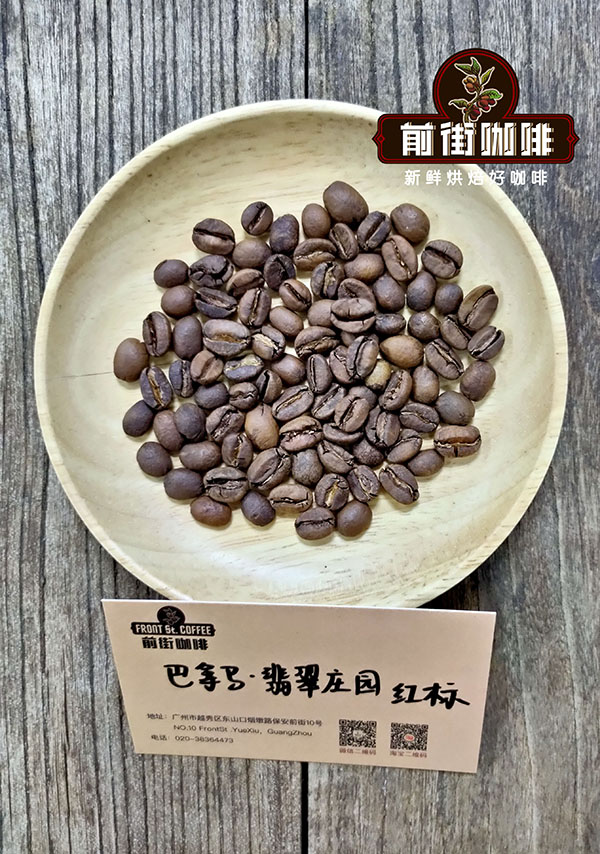
Sun treatment of Jadeite Manor
In the sun treatment of the emerald manor, the harvested coffee fruit will be sent directly to the courtyard to dry. The coffee fruit dries slowly, the coffee beans are still inside, and the coffee beans are full of fruit and aroma. Coffee fruit will be evenly dried. Depending on the weather and the composition of the venue, the coffee will dry on the concrete platform for 3 to 5 days (8 hours a day). When it is dry enough, rotate it in a Guardiola dryer for 72 hours to complete the drying process and prevent fermentation. After the drying is finished, use the machine to remove the pulp and other parts.
Guardiola is the preferred drying method, as long as the size of the coffee block allows, Guardiola can handle a large amount of coffee. Guardiola is a horizontal rotating drum that allows warm air to flow around the beans and removes moisture. When the coffee beans are dried, put them in a nylon bag and store them in the warehouse for 30 to 45 days. This step, also known as "reposo", helps stabilize coffee beans and improve the flavor in the cup.
Rosa Village, Ethiopia
In 2007, documentary director Adam Overton and photographer wife Rachel Samuel came into contact with the Gera Coffee Forest in the Banchi Maji region while shooting a documentary about Ethiopian coffee for the Ethiopian government, and in the process they came up with the idea of building their own coffee estate and brand. In 2009, they were lucky enough to meet the famous mule owner and BOP judge Willem Boot, and Willem Boot's idea provided an opportunity for the Overton couple to return to Ethiopia to find the birthplace of Rose Summer. Finally they came to Banchi Magi, an area in southwestern Ethiopia near South Sudan, where many places are known as the village of Gesha and where primitive roses are most likely to be found.
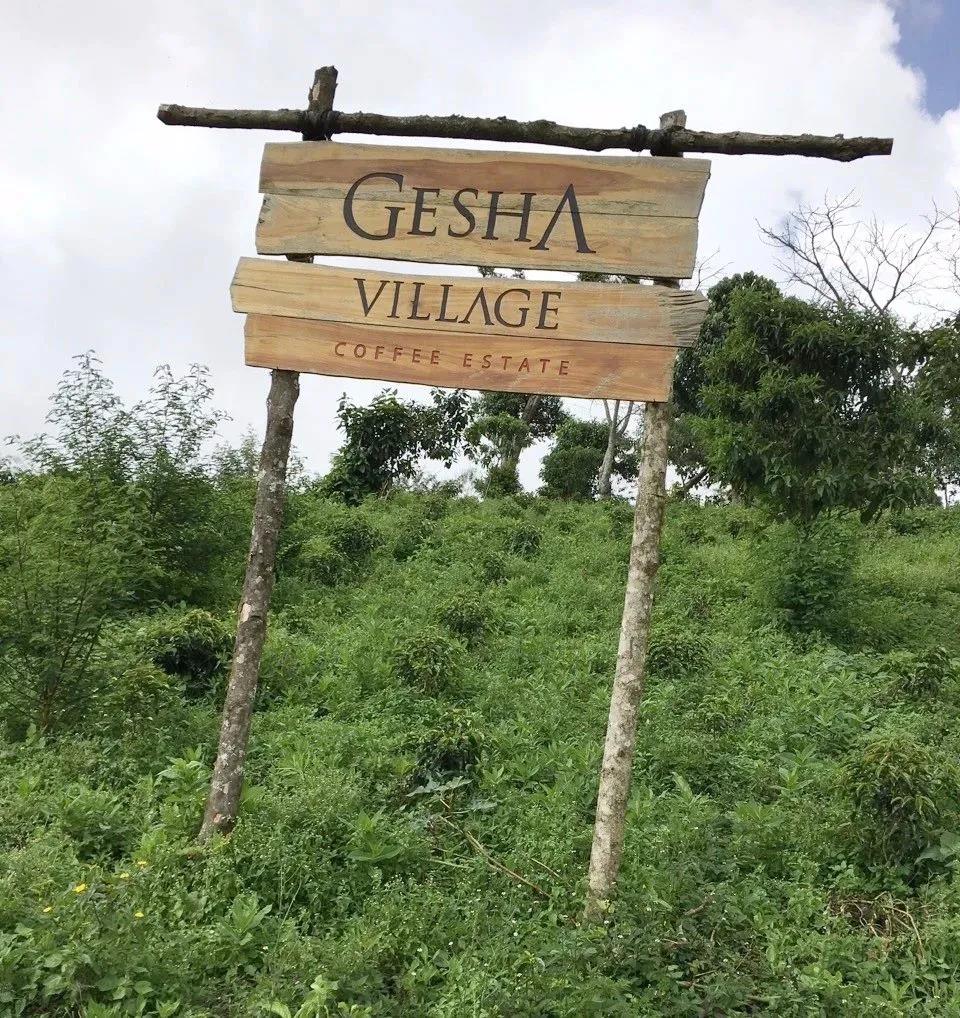
Adam followed WillemBoot on an adventure in the forest around the manor. In a jungle magically surrounded by a thick forest, he found a variety of wild tree species, and what surprised them most was to find the wild rose summer. Later they learned that this was the place where the rose species were first found in the Gori Gesha forest. So they collected seeds from native rose trees, screened them, and planted them in Rosa Village. They decided to build the estate here and name it Gesha Village Coffee Estate, a 475-hectare coffee farm about 12 miles from the Gori Gesha Forest. There are three varieties in Rosa Village, named after the expedition when the coffee was discovered: Gesha1931 and Gori Gesha and Illubabor provided by the Ethiopian Coffee Research Center. Gori Rosa Gori Gesha (GG): this variety replicates the genetic diversity in the Gori Gesha coffee forest. Rose 1931 Gesha 1931 (G31): a combination of varieties with different forests, which is very similar to Panamanian rose. It is screened by observing its plant type, bean shape, order size and cup flavor. Illubabor Forest 1974 (IF): found during an expedition to the Illubabor Forest in 1974, a variety with antibodies was later developed by the Ethiopian Research Center.
There was no manor and estate hierarchy in Ethiopia, and after discovering the Rose Summer Forest, Willem Boot and Adam decided to move the Panamanian coffee farm here, so Rosa Village became the only coffee farm in Ethiopia. What they do is that each batch, a label, can be traced back to the details of the bean. There is a strict grading system in Guoxia Village, which is competitive bidding, gold bid, red bid, green bid and Chaka batch. The most popular Rose Summer Coffee in Qianjie Coffee Village is the Red Standard Rose Summer Coffee.
Red label batch
The batch with complete traceability has the typical flavor of Rosa Village, the flavor intensity and complexity are slightly weaker than the gold standard batch, and it is a single batch with high performance-to-price ratio.
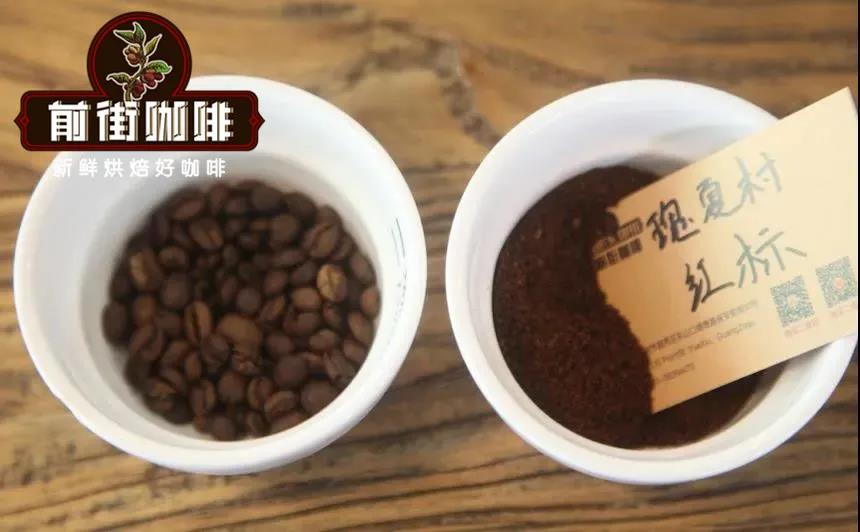
Qianjie Coffee-- Red sign of Ruoxia Village
Gesha Village Coffee Estate Grower's Reserve
Rose Xia Village Red Standard Rose Summer
Producing area: Banchi Maggie
Altitude: 1909-2069m
Variety: Gori Rose Summer (Gorigeisha)
Treatment method: sun treatment Natural
Sun treatment in Rose Xia Village
First remove the floating impurities, and then cover the sun with a thin layer of plastic sheeting on the African-style elevated scaffolding. when drying with a tanning bed, they will be screened again to select worm-eaten beans and coffee beans that are green in color. The total drying time is 18-30 days. Qianjie believes that the sun-treated coffee has obvious sweetness, soft acidity and the tonality of compound fruits in flavor.
Qianjie Coffee roasted Rosa Coffee beans suggestion
The baking of the Jade Manor uses the Yang family 800N and the amount of beans is 380. The furnace temperature is 150 ℃, the firepower is 120, and the throttle is set at 3; the temperature recovery point is 1 ", and the throttle is opened to 4 at 140℃, and the firepower remains unchanged; when the furnace temperature is 147.6 ℃, the bean meter turns yellow, the grass smell disappears completely, and enters the dehydration stage; when the furnace temperature reaches 150 ℃, the firepower is adjusted to 100, and the throttle remains unchanged. The smell of toasted bread has obviously changed to the smell of coffee, which can be defined as a prelude to an explosion. At this time, it is necessary to listen carefully to the sound of the explosion point, when the sound of the explosion point begins to explode, the throttle opens to 4, and after the explosion, the development of the ℃ after the explosion begins.
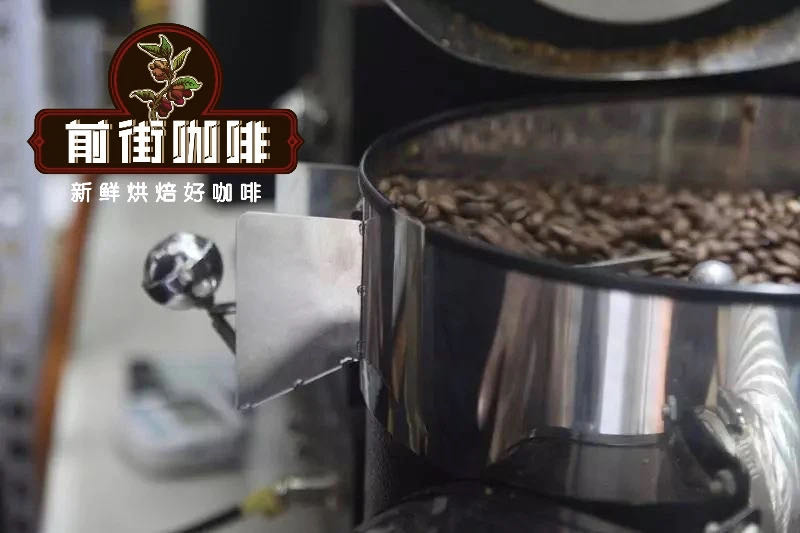
Yangjia 800N is used in the red standard of Ruoxia Village, the bean quantity is 300g: the furnace temperature is 160℃, the firepower is 100g, the throttle is set up 3; the temperature recovery point is 1 ℃, the throttle is 40 ", when the furnace temperature is 142℃, the throttle is opened to 4, the firepower is raised to 150; when the furnace temperature is 148.1 ℃, the bean meter turns yellow, the smell of grass disappears completely, and the wind and firepower drops to 120in the dehydration stage. The smell of toasted bread has obviously changed to the smell of coffee, which can be defined as a prelude to an explosion. At this time, it is necessary to listen carefully to the sound of the explosion point. The sound of the explosion point starts to explode at the 8pm 39th 25 ", the throttle opens to 5", the development after the explosion is 1mm "39th 45", 197.5 ℃ into the pot.
Report on testing roses and summer coffee beans in Qianjie coffee cup
[red standard rose summer cup test]
Dried incense: Jasmine, citrus
Wet fragrance: citrus, lemon, honey
Entrance: lemon, honey, berries, orange peel, mango, cream, citrus, tea

[Ruoxia Village Rose Summer Cup]
Dried incense: sense of fermentation
Wet fragrance: drupe
Entrance: flower fragrance, tea, cream, tea
The cup of rosy summer coffee in the front street is not very similar to the Panamanian rosy summer as we know it. The rosy summer coffee beans grown in Panama have a charming floral aroma in both dry and wet fragrance, while the rosy summer grown in the village is characterized by stone fruit in the entrance, which is slightly inferior to the Panamanian rosy summer.
Experience of brewing coffee in Qianjie
Filter cup: V60
Powder content: 15g
Ratio of powder to water: 1:16
Degree of grinding: BG6H (78% pass rate of No. 20 screen)
Water temperature: 91 degrees
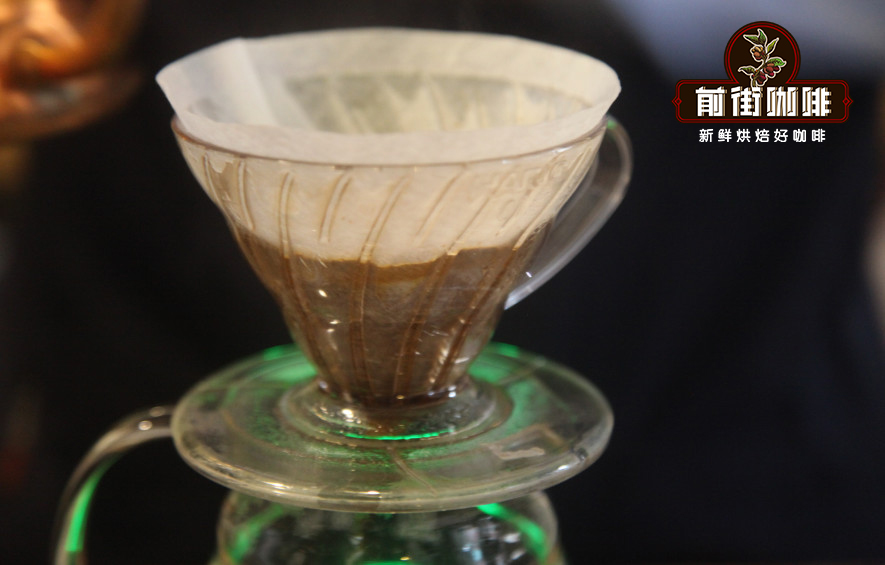
The front street cooking technique: first wet the filter paper and preheat the filter cup and the coffee pot. Steam with 30 grams of water for 30 seconds, small water flow around the circle to 125 grams for stages, when the water level is about to expose the powder bed, continue to inject water to 240 grams to stop water injection, and so on when the water level drop is about to expose the powder bed, remove the filter cup, (steaming starts timing) the extraction time is 1 minutes 39 meters 55 meters 2505 ".
Jadeite red standard cooking flavor: there are bright roses, citrus aromas, black rice, berries, apricots, compound fruits, honey, thick juice, rich flavor levels, sweet and obvious.
Ruoxia Village cooking flavor: citrus acid at high temperature, mellow thickness, slightly lower temperature, soft acidity, yellow drupe flavor, creamy sweetness, slight flower aroma, slight black cocoa aftertaste, maple syrup and berries at low temperature.
Professional coffee knowledge exchange more coffee bean information please follow the coffee workshop (Wechat official account cafe_style)
For more boutique coffee beans, please add private Qianjie coffee on Wechat. WeChat account: kaixinguoguo0925
Important Notice :
前街咖啡 FrontStreet Coffee has moved to new addredd:
FrontStreet Coffee Address: 315,Donghua East Road,GuangZhou
Tel:020 38364473
- Prev

General knowledge about Blue Mountain Coffee
The Tooth Plus Law stipulates that only beans produced in mountainous areas can be called Luoshan Coffee. High-level Gaoshan Coffee can be divided into three grades: No. 1 (over 17,18 mesh), No. 2 (16 mesh) and No. 3 (15 mesh), with 17 eyes equivalent to 17x64 inches; it tastes the same (all must be confirmed by the professional cup of dentistry and government staff), but the sizes are different, these three levels
- Next

Introduction to coffee varieties: Harald (English name: Harar)
A general conventional variety of the Harald region of western Ethiopia characterized by a strong tree species and a high yield of coffee; but it is easy to get.
Related
- Detailed explanation of Jadeite planting Land in Panamanian Jadeite Manor introduction to the grading system of Jadeite competitive bidding, Red bid, Green bid and Rose Summer
- Story of Coffee planting in Brenka region of Costa Rica Stonehenge Manor anaerobic heavy honey treatment of flavor mouth
- What's on the barrel of Blue Mountain Coffee beans?
- Can American coffee also pull flowers? How to use hot American style to pull out a good-looking pattern?
- Can you make a cold extract with coffee beans? What is the right proportion for cold-extracted coffee formula?
- Indonesian PWN Gold Mandrine Coffee Origin Features Flavor How to Chong? Mandolin coffee is American.
- A brief introduction to the flavor characteristics of Brazilian yellow bourbon coffee beans
- What is the effect of different water quality on the flavor of cold-extracted coffee? What kind of water is best for brewing coffee?
- Why do you think of Rose Summer whenever you mention Panamanian coffee?
- Introduction to the characteristics of authentic blue mountain coffee bean producing areas? What is the CIB Coffee Authority in Jamaica?

